An Earth Day Panel
Monday, April 22, 2024 at 12pm
Lower Flat Tuesdays, 1st Floor, UMBC Commons
For most of us, managing greenhouse gas emissions and watching distant islands flood or glaciers melt are far beyond our reach. However, the pervasive reach of an environmental reckoning means we have local issues, with much for all of us to work on. This panel brings together scholars and community members to discuss multiple ways to understand climate work.
Introduction and panel moderation:
Susan Sterett, Professor, School of Public Policy at UMBC
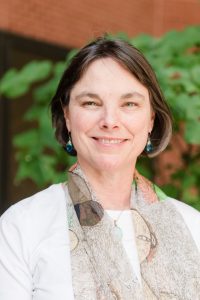
Susan Sterett is a Professor of Public Policy at UMBC. She is the author most recently of Susan Sterett has long written and taught about law, courts and social welfare. For the last twenty years, she has been publishing on courts and governance in climate related disasters. She has published on legal rights in action in journals including Political Science Quarterly and Risks, Hazards, Crisis and Public Policy. Her 2023 book Litigating the Pandemic: Disaster Cascades in Court (University of Pennsylvania Press) argued that the politics of litigation in the pandemic is the politics of litigating climate change. She is currently finishing a book under contract with University of Pennsylvania Press on disaster, displacement and social welfare in a changing climate. She is also co-editing a special issue of the journal Law and Society Review on law in a changing climate. She has served as general co-editor of Law and Society Review. She has also written on and co-edited a book on the comparative politics of courts.
Panelists:
Chris Blume, Doctoral student, UMBC’s ICARE alumnus
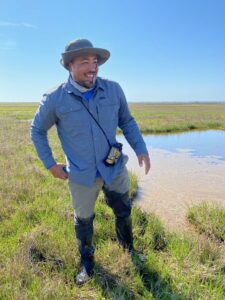
Christopher Blume is a graduate student at Virginia Tech university studying the impact of increased urbanization of wildlife communities and how wildlife can be used to monitor the health of our urban communities and green spaces. Chris graduated with his master’s from UMBC’s Geography and Environmental systems department in 2023 and was a member of the university’s ICARE Cohort, a program whose aim is increasing the diversity of the environmental workforce and engaging the community in local environmental research.
Erle Ellis, Professor, Department of Geography and Environmental Systems, UMBC
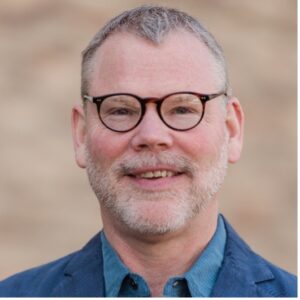
A Global Highly Cited Researcher, he studies the ecology of human landscapes to inform sustainable stewardship of the biosphere. He teaches environmental science and landscape ecology, which he has also taught at Harvard’s Graduate School of Design. He is a Visiting Fellow at Oxford’s Martin School, Lead Author of the IPBES Transformative Change Assessment, Fellow of the Global Land Programme, Senior Fellow of the Breakthrough Institute, and former member of the Anthropocene Working Group. His book, Anthropocene: A Very Short Introduction, was published in 2018.
Yusuke Kuwayama, Assistant Professor, School of Public Policy at UMBC
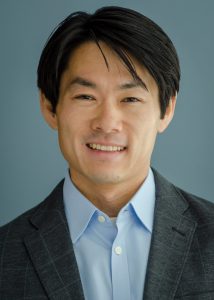
Dr. Yusuke Kuwayama is an Assistant Professor in the School of Public Policy at the University of Maryland, Baltimore County, and a Fellow at Resources for the Future (RFF) in Washington, DC. Dr. Kuwayama’s research focuses on the economics of water resource management. Dr. Kuwayama is particularly interested in interdisciplinary approaches to address questions involving sustainable use and management of coupled human-natural systems, especially work that requires modeling human decision-making, hydrologic and ecological processes, and the connections between them.
Laura Todd, Senior Green Infrastructure Projects Manager, Alliance for the Chesapeake Bay
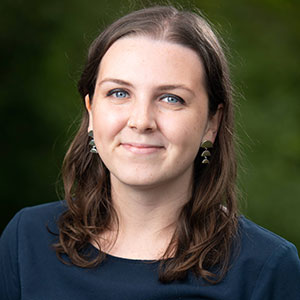
Laura was born and raised on the Eastern Shore of Maryland and graduated from Elon University with a B.A. in Environmental Studies. She was an Elon College Fellow, which afforded her the opportunity to do undergraduate research on the significant life experiences of adolescent environmentalists. Laura is the Senior Green Infrastructure Projects Manager at Alliance for the Chesapeake Bay, a regional environmental non-profit. The Alliance’s collaborative and action-oriented approach delivers on-the-ground solutions, technical assistance, and builds capacity to achieve healthier lands and cleaner water in the Chesapeake Bay watershed. Laura implements stormwater and restoration-focused projects across Maryland. These practices improve climate resilience, create habitat for fish and wildlife, and enhance water quality. Laura is currently working towards a graduate certificate in Wildlife Management from Oregon State University.